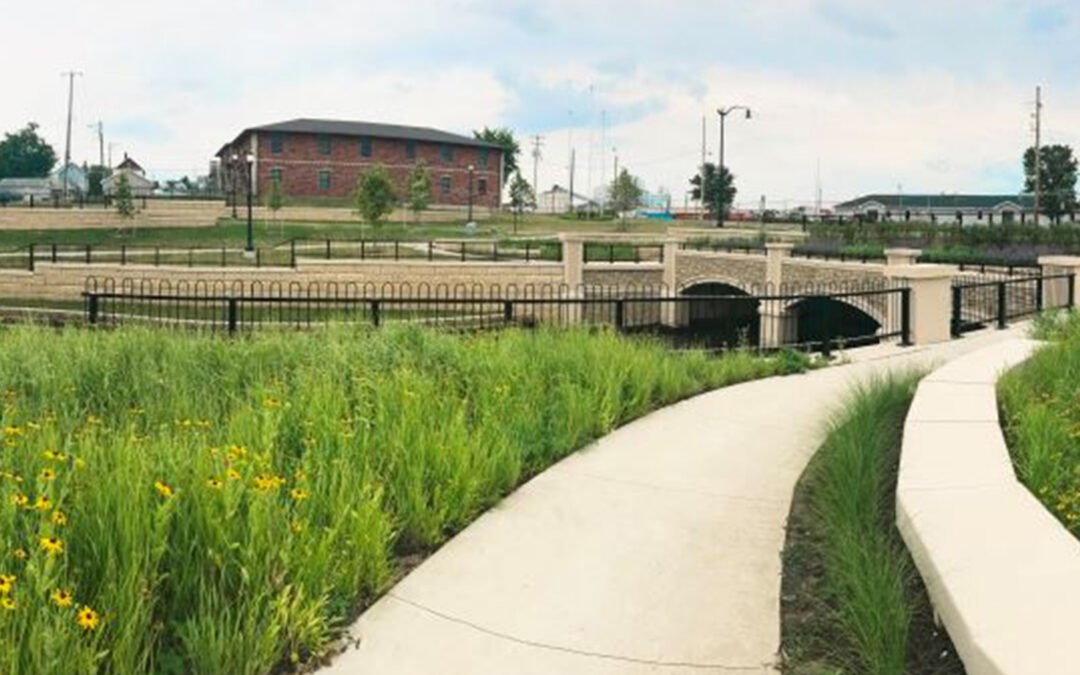America’s Watershed Initiative (AWI) has begun to investigate techniques that will accelerate the use of nature-based solutions. Nature-based solutions, as described by the International Union for Conservation of Nature, are “actions to protect, sustainably manage, and restore natural or modified ecosystems, that address societal challenges effectively and adaptively, simultaneously providing human well-being and biodiversity benefits.” AWI plans to bring nature-based solutions into the forefront to address some of the challenges in the Mississippi River Watershed such as increases in extreme precipitation and water quality degradation.
Over the next year, AWI will work to address three issues that we believe will serve to accelerate the use of nature-based solutions in the Watershed:
- AWI will research policy incentives and disincentives that could make nature-based solutions easier to install and permit.
- We will hold workshops with communications specialists and nature-based solutions implementers to find creative ways to communicate the effectiveness of nature-based solutions strategies.
- We will collaborate with the academic community and implementation specialists to further research performance metrics to show the capacity of these solutions to mitigate the impacts of excessive rainfall and nutrient run-off.
Examples of nature-based solutions that have proven to provide flood mitigation and water quality benefits in the Watershed include on-farm solutions such as cover crops and prairie strips and larger scale projects such as floodplain restoration and levee setbacks. One such project, championed by AWI Board Member Teri Goodmann (link out to Teri’s bio), was the Bee Branch Creek Watershed Flood Mitigation Project in Dubuque, IA. The Bee Branch Watershed includes the city’s most developed area, some of the most affordable housing, and is also an area that had been significantly impacted by frequent flash flooding for decades. The flood mitigation project saw a buried storm sewer converted into a linear park. By “daylighting” a buried creek and constructing upstream detention basins, they were able to increase flood capacity while creating a beautiful space for the community to enjoy.
AWI is grateful to our funders, the Caterpillar Foundation, The Nature Conservancy, Midwest Climate Adaptation Science Center, Upper Mississippi River Basin Association, the American Farmland Trust, for their commitment to the health and success of the Mississippi River Watershed.

